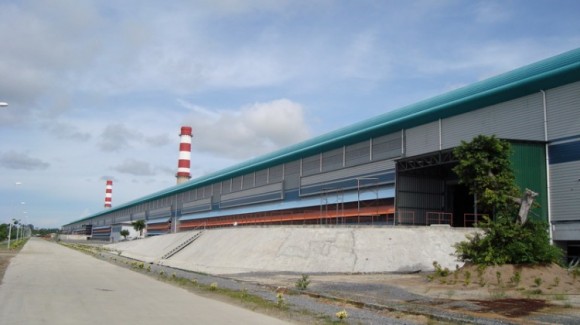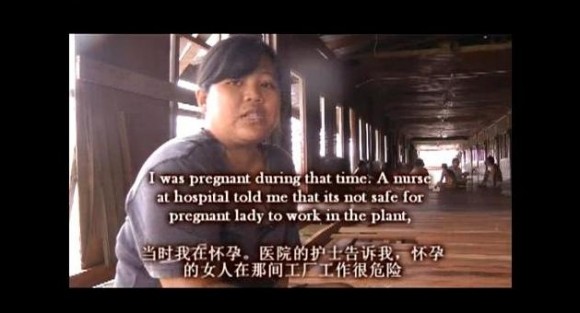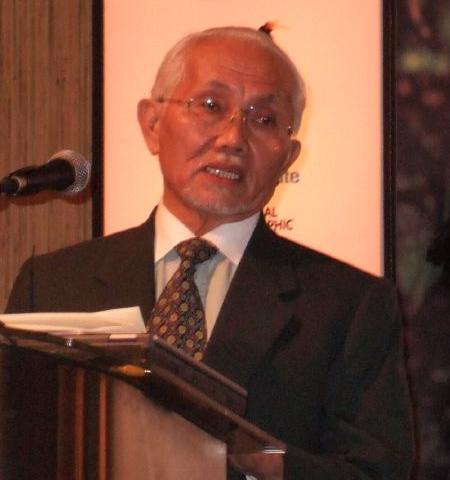Stop Aluminium Smelting Plants!
Thursday, August 23, 2012
Tuesday, June 19, 2012
Slow death by aluminum smelters?
http://www.thenutgraph.com/slow-death-by-aluminum-smelters/
Documentary filmmaker and former TV2 producer Chou Z Nam has highlighted the Iban villagers’ plight in four short videos, all available on YouTube, and a report after a field visit in February 2012. Chou is well-known for his documentaries on the Bakun Dam and its impact on local communities. His Bakun Dam documentaries were axed by RTM and he was sacked after disclosing the self-censorship.


More smelters in the pipeline

WHILE green activists in Peninsular Malaysia are protesting the rare earth refinery that has yet to begin operations in Gebeng, Pahang, villagers living near an aluminium smelting plant in Balingian, Mukah, Sarawak, have been suffering in silence.
How is the aluminium smelting plant affecting the lives of local communities in Balingian? Should we be alarmed at plans for new plants?

The aluminium smelting plant in Mukah (Source: unireka.com)
Declining health and dying crops
In Chou’s first short video released on 22 March 2012, villager Sandy Dancan, 18, complained of skin irritation and rashes which she has had since 2010. Dancan lives 300m away from the plant owned by Press Metal Sarawak Sdn Bhd.
Another villager, Cynthia Unau, 25, worked as a cleaner at the smelter for six months in 2011. She claimed she fell sick while working there in Chou’s second video released on 24 March 2012.
A simple health survey conducted by Chou and local activist Matek Geram found that villagers from three longhouses located 300m to 2.5km from the factory reported symptoms of breathing difficulties, coughing and dizziness, among others. The affected families say they spend RM150 up to RM500 a month for medical treatment.
It was also observed that plants growing 50m to 200m from the factory including nipah, coconut, sago, banana, oil palm and ferns, were dying.
Farmers living within 12km of the smelter have claimed loss of livelihood as their crops cannot bear fruit, while fisherfolk at Batang Balingian alleged that their catch has dwindled, possibly due to acid rain pollution.
Chou’s documentary also records an unidentified former employee accusing the smelter of only using one out of its three compressors to treat air pollutants including hydrogen fluorideand sulphur dioxide in order to save energy costs. The informant claimed that although the plant was equipped with the required pollution control facility, it wasn’t fully utilised when he was working there.
Press Metal Sarawak refuted these claims in a Borneo Post report published on 8 May 2012. Its human resources general manager, Soh Siew Ong, said the smelter only released clean gas into the air and that no water is discharged from the plant.

Cynthia Unau's testimony as featured in Chou's video
More smelters in the pipeline
While villagers in Balingian are still grappling with the health impact of living near an aluminium plant, at least two new larger smelters are expected to be built in Bintulu.
Press Metal Bhd secured a RM350 million loan in May 2012 from two local banks to finance the construction of its second aluminium smelting plant in Bintulu’s Samalaju Industrial Park. The plant is expected to produce 240,000 tonnes of aluminium annually, double the capacity of the existing Balingian plant.
Smelter Asia, a joint venture between Gulf International Investment Group Holdings Sdn Bhd and Aluminium Corp of China, also plans to build a smelter in the same industrial park, with an even larger annual capacity of 370,000 tonnes.
Aluminium smelting involves a chemical process to extract pure aluminium from its oxide called alumina. But the process leaves behind fluoride pollutants, including the pungent and toxic hydrogen fluoride as well as perfluorocarbons (PFCs), which are far more potent greenhouse gases than carbon dioxide.
In addition, an aluminium smelting plant is an energy guzzler as a high temperature of 970 Celsius is needed to melt the alumina. For example, while the Mukah district consumes two megawatts of electricity per month, the Balingian smelter alone uses up to 200 megawatts a month, according to Press Metal Sarawak. Smelter Asia is also in talks with Sarawak Energy Bhd to secure over 600 megawatts of power supply.
Heed the warning signs
The process of extracting aluminium is an environmental challenge. Yet, aluminium is highly sought after to make vehicles and for food packaging, and is arguably a necessity in modern life. The aluminium industry is one of the primary forces behind the Brazilian government’s plan to dam rivers in the Amazon to meet the industry’s high energy demand. Sarawak seems to be going down the same path with its grand plan to build 12 mega dams despite growing local opposition.
Unlike the case with Lynas, a detailed environmental impact assessment was done for theBalingian smelter. But given the current complaints, the government authorities need to be more proactive in addressing villagers’ complaints on health problems, pollution and dying plants. These are merely warning signs of a potentially larger underlying problem. If, as Press Metal Sarawak claims, no air pollutants have been released by its smelting plant, then what is the real source of pollution in Balingian? Shouldn’t the authorities be investigating?

Taib Mahmud (Wiki commons)
As Chou recommended in his fact-finding report, a more thorough health study needs to be conducted to ascertain the cause of the villagers’ sicknesses. Rainwater and plant samples ought to be collected by the state Department of Environment to find out if they are contaminated with pollutants from the smelter.
The Balingian smelter is located Sarawak Chief Minister Tan Sri Abdul Taib Mahmud’s constituency. Surely he wouldn’t want an environmental and public health scandal in his own backyard.
In addition, the Sarawak government ought to rethink its development strategy. Building more smelters may indeed spur the state’s economic growth, but not at the expense of the health and quality of life of the locals, unless the companies are held to strict environmental standards. 
Monday, May 7, 2012
News: RM820m claims to drive up Bakun Dam costs

KUALA LUMPUR, May 7 — Officially priced at RM7.46 billion, the Bakun hydroelectric dam project in Sarawak is likely to rocket again as contractors claim a whopping RM820 million from its chief promoter, state-owned Sarawak Hidro Sdn Bhd, The Edge Financial Daily reported today.
However, the final price for the long-delayed dam project is yet to be determined.
A joint-venture company led by Sime Darby, the Malaysia-Sino Hydro Corp joint Venture (MCHJV), has put in claims totalling RM670 million for civil works while another consortium of contractors supplying turbines led by Argentina’s IMPSA group is seeking to claim RM140 million, the daily reported, quoting financial executives close to the project.
It also reported government sources familiar with the ongoing negotiations as saying that Sarawak Hidro, a wholly-owned subsidiary of the Finance Ministry, is willing to pay just over RM100 million while its consultants, who were unnamed, disclosed that IMPSA’s claims have been rejected.
“Both claims are still subject to negotiations between Sarawak Hidro and the respective parties. Ultimately the decision will come from the Finance Ministry,” the paper reported an unnamed senior construction industry executive involved in the project as saying.
The latest claims come at a time when Sarawak Hidro is desperately looking for buyers for power to be generated by the dam, the daily reported.
Rio Tinto, the world’s third largest miner, and Cahya Mata Sarawak, a financial and construction conglomerate based in Sarawak, announced on March 27 this year they have scrapped plans for a US$2 billion (RM6.1 billion) aluminium smelter project in Sarawak as power supply terms could not be finalised.
The aluminium smelter was to have been Bakun’s biggest customer, The Edge Financial Daily reported.
The dam project, first awarded to Ekran Bhd in 1994, was scheduled to have been completed in 2007 but has been plagued by various problems including the 1997 Asian financial crisis.
Inaccurate soil studies by Sarawak Hidro further complicated civil works portion of the dam, the business daily reported.
The mammoth project has also been downsized, with an undersea cable supplying power to Peninsular Malaysia scrapped.
http://www.themalaysianinsider.com/malaysia/article/rm820m-claims-to-drive-up-bakun-dam-costs/
Saturday, April 14, 2012
Friday, March 30, 2012
News: PKR: Press Metal Sarawak waiting for Taib’s nod
KUCHING: Chief Minister Taib Mahmud, whose family owns Cahya Mata Sarawak (CMS), is unperturbed by global mining giant Rio Tinto PLC’s RM7 billion ‘pullout’ because another investor, Press Metal Sarawak, is believed to be “ready and waiting” to start an aluminium smelter plant.
Press Metal, which has been operating in Mukah since September 2009, is already producing some 300,000 metric tonnes of various aluminium products.
It is apparently one of the two investors which Taib had alluded to in his response to Rio Tinto’s decision to scrap plans to invest RM7 billion in an aluminium smelting plant here.
Press Metal is a Malaysian-based aluminium company with extensive global presence.
The existence of the Mukah plant however only came to light last year after longhouse residents at Rumah Bansan, and five other longhouses in Mukah, claimed they have been suffering from a ‘mysterious’ illness causing their skins to be itchy, various skin diseases, headaches, coughing, breathing difficulties and other health problems.
The villagers claimed that fish, vegetables, fruit trees and the surrounding areas were also affected and blamed their difficulties to the nearby aluminium plant.
Said state PKR vice-chairman See Chee How, when commenting on Rio Tinto’s decision: “Losing the ‘anchor’ aluminium smelting plant project could be a blessing in disguise.
“It’s an opportunity for the Sarawak state government to review its decision and drop its plan to construct the 12 mammoth (hydro-electric) dams in Sarawak.
“However, we are aware that Press Metal Sarawak may step in to replace Rio Tinto Alcan.”
Laxed laws
See, who is the Batu Lintang assemblyman, Sarawak’s relaxed environmental protection legislatures and policies was appealing to multi-national conglomerates.
“Together with the other multi-national conglomerates which are interested to exploit our cheaper hydropower resources and our relaxed environmental protection legislatures and policies, Sarawak will be pervaded by the world most polluting industries in aluminium smelting, manganese smelting, ferro-alloy smelting and polycrystalline silicon plant
“Until today, Sarawakians are kept in the dark as to the environmental impact these industries will have on the state and the Similajau region in particular,” See said.
He also pointed out that it was unlikely that these industries will create job opportunites for locals.
“We are skeptical that these industries will create job opportunities for local Sarawakians as it is reliably learned that one of the manganese smelting companies had doubted the capability of locals to withstand the heat and it has already engaged an employment agency to recruit workers from India and China.
“In addition, these industries will not be generating revenues for the state as they are enjoying a 10-year tax exemption which is the very reasons these industries are setting up their smelting plants in Sarawak,” he said.
Source: http://www.freemalaysiatoday.com/category/nation/2012/03/30/pkr-press-metal-sarawak-waiting-for-taibs-nod/
Labels:
Balingian,
CMS,
Press Metal,
Rio Tinto Alcan,
Taib Mahmud
Subscribe to:
Posts (Atom)